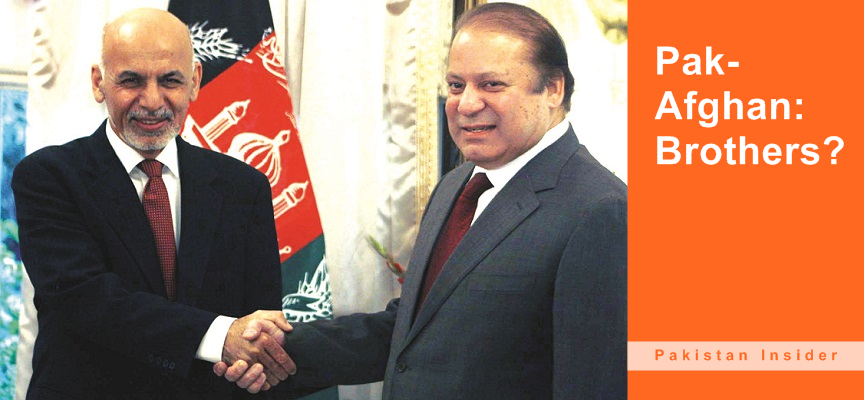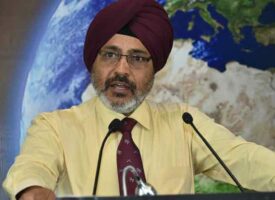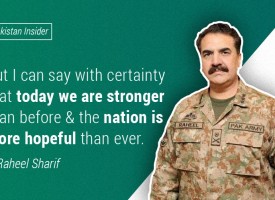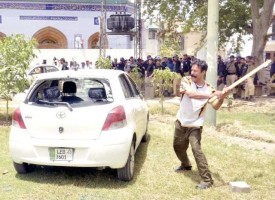Pak-Afghan ties have always been paralyzed by the cross border insurgency movements and the blame game on state level. However, the hostile relations between the two countries have a viable historical background which set the framework for the prevailed situation.
Relationship between the two countries started right after the independence of Pakistan. Unfortunately due to Durand line issue which is the border between the two countries, Afghan government was not ready to accept Pakistan as an independent country. Durand Line was drawn as a result of an agreement of the past which was supposed to last till 1993. Hesitation from Afghanistan has been shown on account that no physical demarcation be drawn between Pakhtoons.
In 50’s Afghan forces invaded western parts of West Pakistan to claim certain areas of frontier region but were sent back by Pakistan forces. The tensions agitated more in 70’s when Pakistan’s largest intelligence agency ISI in support from CIA started to penetrate in Afghan’s internal affairs due to Soviet-Afghan war.
Gulbudin Hekmatyar, Ahmed Shah Massoud, Haqqanis and some other rebels against Afghanistan government were supported by Pakistan. Similar cooperation was also seen from the other side. Al-Zulfiqar, a Pakistani terrorist leftist group was assisted by Afghanistan’s intelligence agency along with RAW and Soviet Intelligence.
Taliban insurgency after 9/11 added fuel to the fire. The impression of Pakistan in the eyes of Afghanistan public is obviously not very good due to the past incidents and so has been the attitude of their governments except the exceptional relations during the regime of Talibans.
Although we can’t actually consider Hamid Karzai’s regime as fortunate for Pakistan yet he has termed both countries as “inseparable brothers” due to the deep rooted links between the two countries.
Since Ashraf Ghani assumed office last year, there has been a remarkable improvement in bilateral relations. Islamabad has assured Kabul that it will liaise with Afghanistan to fight against insurgents across the border. For the first time in history Pakistan has rebuked Afghan Talibans and called their recent attacks an act of terrorism.
However, Mr. Ghani anticipates an epoch-making role from Pakistan to bring the Afghan Taliban to the negotiating table as has an exaggerated belief of Pakistan’s influence over them.
Afghan Army Chief General She Muhammad Karimi was invited as a chief guest for passing out parade of 132 PMA L/C. Fully funded scholarships for Afghan students have also been started in LUMS. Huge credit goes to Mr. Ghani for all these efforts.
It must be noted that right after recent Kabul attacks, Mr. Ghani said that “Pak-Afghan ties are not like a relationship between two young brothers, but are those strictly between two states.” The already worse situation was further exacerbated by Pakistan’s interior minister Ch. Nisar’s statement rejecting Ghani’s statement.
The blame game still goes on and both the states consider each other accountable for the cross border attacks. PAF Base attack and Kunduz occupation are just recent examples of the cross border tensions for which both the governments didn’t let any chance to blame each other. The blame game and instability on both sides are liable to exist until the relations between both are established on transparency, information sharing on security between ISI and KHAD.
Pakistan truly needs to revise its foreign policy. Other important aspect is the Pakistan’s policy on Afghan migrants. Policy of coerced evacuation is in sheer need of an alternative, which would be happily agreed upon by both the parties. Instead they can be given proper status and made to pay taxes thus adding to the economy of the country.
Pakistan’s policy over its assistance in “US war on terror” needs to be revised. Pakistan needs not to indulge in any such activities that are detrimental to country’s peace, stability and integrity. This statement has been seconded by many renowned people like Gen (r) Hamid Gul in his interview to BBC.
Moreover, on public level, educational exchange programs between the two countries can also bring understanding between the present young generations of the two states who are already falling prey to ethnic and linguistic radicalization.
DISCLAIMER: This is a guest post by Sajid Ullah. “Opinions expressed here are solely of the author. Pakistan Insider does not necessarily agree with its content”.
Top image via: pakistantoday.com.pk








No comments!
There are no comments yet, but you can be first to comment this article.